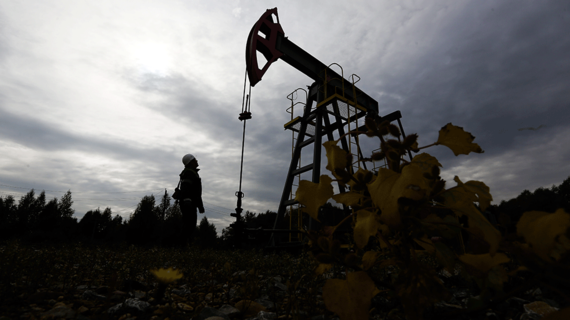Oil prices fell below $81 a barrel for the first time since mid-January
[ad_1]

Futures for Brent crude on November 28 fell to a minimum since January 2022, dropping below $81/bbl, according to data from the ICE exchange.
Around 10:00 Moscow time, the price of January futures fell by 3.6% from the level of the beginning of trading to $80.64/bbl. At 12:00 pm, quotes slightly recovered – up to $81.3/bbl.
A new round of falling oil prices began last week: the price of a barrel of Brent fell from $88.36 on November 22 to $85.41 on November 23, and then to $83.63 on November 25.
World oil prices soared in 2022 after the start of a special military operation (SVO), the imposition of anti-Russian sanctions and concerns about further supplies from Russia. The price of Brent peaked in early March, approaching $128/bbl. Then oil quotes gradually declined and overcame the $100/bbl mark in the summer. As early as November 17, prices dropped below $90/bbl.
A new round of falling oil prices began against the backdrop of a delay in the decision to introduce a price ceiling for Russian oil. The G7 countries (G7, includes the UK, Germany, Italy, Canada, the USA, France and Japan) and the EU have agreed to impose a price cap on oil from the Russian Federation simultaneously with the entry into force of the EU embargo. But on November 24, the EU countries could not agree on the ceiling level due to the position of Poland, which advocated the level of $30/bbl, while most other states – at the level of $65-70/bbl, the Politico newspaper wrote.
Stock market expertBCS The world of investments” Igor Galaktionov explains that the fall in oil prices is caused by a combination of negative factors. In his opinion, this is a discussion of the oil price ceiling, the current coronavirus restrictions in China, as well as the increase in rates of central banks around the world. Igor Yushkov, a leading analyst at the National Energy Security Fund, adds that investors fear a global recession, in which the production of goods will decrease and less fuel will be needed to transport them.
According to Galaktionov, if the price ceiling for Russian oil is set at $80/bbl, this could support oil prices. They can also be supported by a further reduction in the oil production quota by the OPEC+ countries for January-February 2023, which will be discussed by the member countries of the cartel on December 4 in Vienna. In October, OPEC+ cut its quota for November and December 2022 by 2 million barrels per day, the largest cut since the deal in April 2020.
Russian authorities have repeatedly stated that Russian companies will not supply energy at a limited price. Deputy Prime Minister Alexander Novak said that Russia would supply oil to friendly countries or reduce its production. Bloomberg reported Nov. 26, citing sources, that the Russian authorities are preparing a presidential decree in response that would ban companies and traders from selling oil to countries that join the price ceiling. If the decision on the level of the oil price ceiling is postponed, Galaktionov continues, then oil prices may fall below $80/bbl. The probability of introducing a ceiling is already affecting prices, the analyst notes.
Oil prices may overcome $80/bbl. and because of US actions, Yushkov adds. “Washington has demonstrated that the price of oil is fundamental to it, so they are ready to lift part of the sanctions on Venezuela, which has the largest oil reserves, in order to bring additional volumes of fuel to the market,” he notes.
November 26 US Treasury published a license that allows the American Chevron to supply oil and petroleum products from Venezuela to the States.
The Wall Street Journal reported, citing sources on October 5, that the parties are discussing the lifting of sanctions and an agreement to unfreeze Venezuela’s funds to pay for imports of food, medicine and equipment. In exchange, Venezuelan President Nicolas Maduro must agree to negotiate with the opposition and hold “free elections” in 2024.
[ad_2]
Source link





